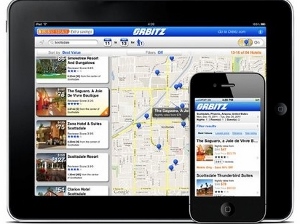
OTA competition vanishes with latest takeover
The accommodation industry has expressed concerns about the merger of Expedia and Orbitz, insisting it will give the giant OTA massive power when negotiating contracts with accommodation providers.
Expedia’s announcement last Thursday of its acquisition of fellow booking company Orbitz for $1.33 billion arrives on the heels of its recent integration with Travelocity, in a bid to keep up with Priceline’s growing empire. Expedia will now have HotelClub and CheapTickets under its umbrella, thanks to the acquisition.
Experts say the companies’ followings give them huge power when negotiating contracts with accommodation providers, which to varying degrees rely on the sites to sell their products. Combined with Orbitz and Travelocity, which it acquired in January, Expedia received about 39 million unique website visitors in December 2014, according to Internet analytics company comScore Inc.
These mergers “strengthen Expedia’s position in the distribution chain and could have implications for consumers, travel agents and airlines,” Melanie Hinton, spokeswoman for the trade group Airlines for America, said on Friday.
“We would expect the Department of Transportation and the Department of Justice to carefully examine these transactions and their impact on consumers and competition.”
Expedia’s two newest acquisitions will likely give it a leg up in the mobile travel sector, especially as it allows the brand to consolidate assets. The integration may be a plus for Orbitz, as reports claim that the brand was suffering from overly relying on flight bookings for profit rather than hotel bookings, which are typically more lucrative.
This acquisition offers Expedia more leverage as it competes against Priceline. Expedia will likely be able to retain a majority of Orbitz’s regular customers but has not commented on its exact plans for its recent acquisitions of Orbitz and Travelocity.
Marketers can bet on Expedia – that now owns Travelocity, Orbitz, Wotif and Trivago – placing an even higher focus on mobile, however, as more millennials turn to their smartphones and tablets for browsing potential vacations and more importantly, booking them.
Travellers, hotel brands and accommodation providers all have good reason to fear this sort of consolidation in the OTA market. With this latest consolidation, the option of selling rooms on a different channel is gone. New contracts for accommodation providers will now contain much higher margins for hotels because there’s nowhere else for them to go.
A common theme for the two remaining OTAs is their astronomical spending on online marketing that no accommodation provider can hope to match.







